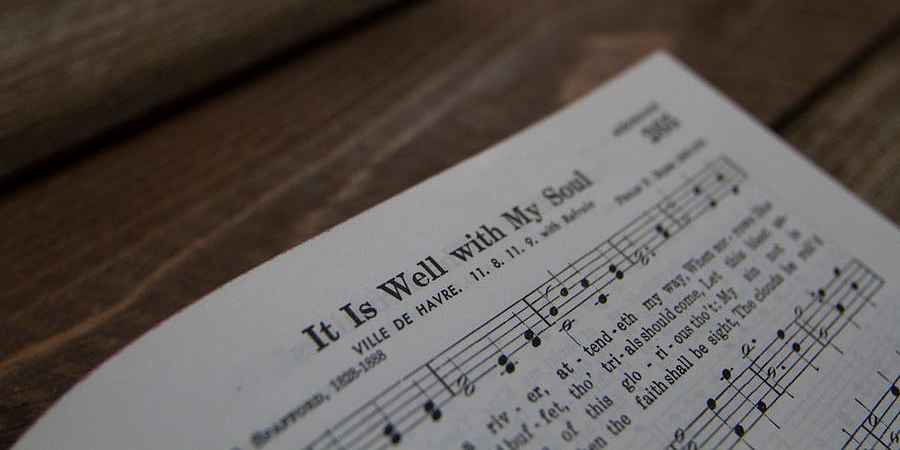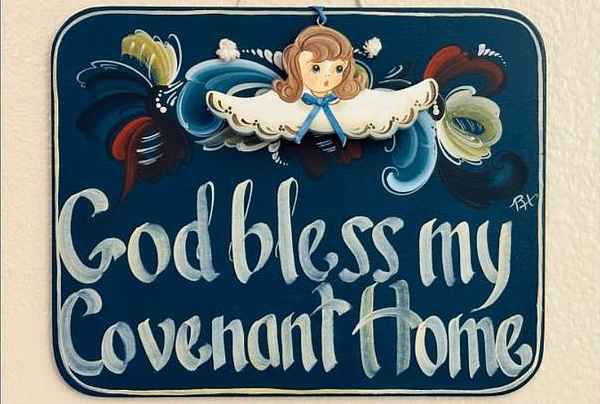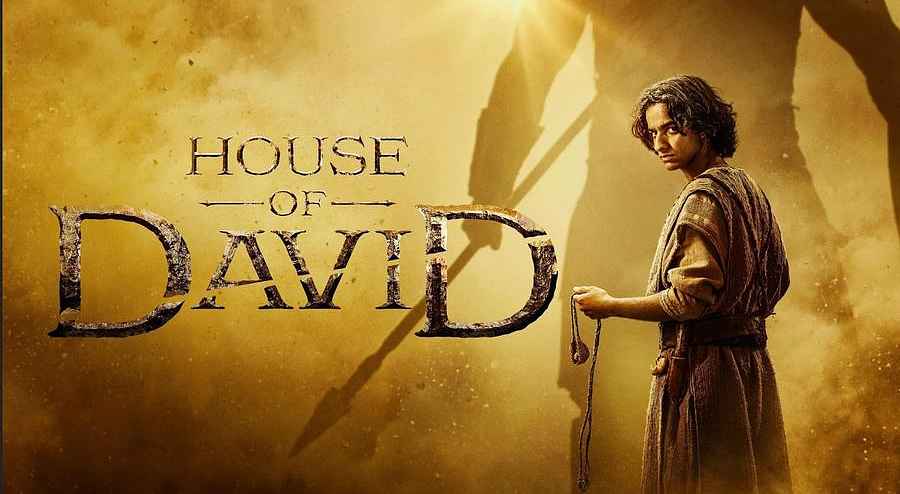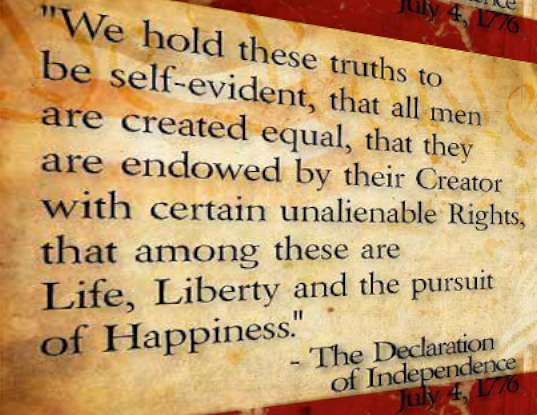






See listing of Recent and Most Popular articles on the Home Page
My World
Category: Holidays / Topics: Beliefs • Freedom • God • Government • History • Holidays • July 4 (U.S. Independence Day) • Patriotism • Religion • Spirituality, Seeking God • Values
Indpendence Day Q&A
Posted: July 2, 2020
A not-so-trivial quiz about July 4 and the Founding Fathers…
Pop quiz! Take out a clean sheet of paper and a number 2 pencil.
True or False: The Declaration of Independence was signed July 4, 1776
All signatures were not inked until August 2.
True or False: George Washington was the first president of the United States
Actually, John Hanson of Maryland was the first president under the Articles of Confederation. His official title was “President of the United States in Congress Assembled.” Washington was actually the ninth president.
True or False: Benjamin Franklin invented the Franklin stove
Although it bears Franklin’s name, David Rittenhouse was the creator of the famous stove.
True or False: The Founding Fathers of The United States were Christians who formed a government based on godly principles.
That’s a more complex answer. The “revisionist left” would like to make them secular and the “religious right” would like to make them saintly. Let’s take a look at some of the more prominent Founding Fathers’ beliefs . . . in their own words.
But first, for the sake of argument, let’s use the Apostles’ Creed as a common description of orthodox Christian doctrine:
I believe in God, the Father almighty,
creator of heaven and earth.
I believe in Jesus Christ, his only Son, our Lord.
He was conceived by the power of the Holy Spirit
and born of the virgin Mary.
He suffered under Pontius Pilate,
was crucified, died, and was buried.
He descended into hell.
On the third day he rose again.
He ascended into heaven,
and is seated at the right hand of the Father.
He will come again to judge the living and the dead.
I believe in the Holy Spirit,
the holy catholic Church,
the communion of saints,
the forgiveness of sins,
the resurrection of the body,
and the life everlasting. Amen.
John Adams
The second President (or tenth if you consider John Hanson the first) wrote to Thomas Jefferson on June 28, 1813:
The general principles on which the fathers achieved independence were. . . . the general principles of Christianity. . . . I will avow that I then believed, and now believe, that those general principles of Christianity are as eternal and immutable as the existence and attributes of God; and that those principles of liberty are as unalterable as human nature.
However, Adams is often quoted as saying, “This would be the best of all possible worlds, if there were no religion in it!” However, here’s the complete quotation in an April 19, 1817, letter to Thomas Jefferson:
Twenty times in the course of my late reading have I been on the point of breaking out, “This would be the best of all possible worlds if there were no religion at all!!!” But in this exclamation, I would have been as fanatical as Bryant or Cleverly. Without religion, this world would be something not fit to be mentioned in polite company, I mean hell.
As a Unitarian, Adams flatly denied the doctrine of eternal punishment, believing all would eventually enter heaven. (Many Unitarians reject the Trinity and most accept all religions as valid expressions of faith.) But being a good Unitarian, he was certainly open to the teachings of Christ.
Jesus is benevolence personified, an example for all men. . . . The Christian religion, in its primitive purity and simplicity, I have entertained for more than sixty years. It is the religion of reason, equity, and love; it is the religion of the head and the heart (Letter to F.A. Van Der Kemp, December 27, 1816).
During Adam’s administration, the Senate ratified the 1797 Treaty of Peace and Friendship with Tripoli, which states in Article XI that “the government of the United States of America is not in any sense founded on the Christian Religion.” Some view this as “a smoking gun” that America was not founded as a Christian nation, while others argue that it was simply a concession to the Muslim nation (when the treaty was renegotiated eight years later, Article XI was dropped).
Samuel Adams
Samuel Adams organized the Boston Tea Party and served as Governor of Massachusetts, a delegate to the Continental congress, and a signer of the Declaration of Independence.
In his 1772 work, The Rights of the Colonists, Adams wrote:
II. The Rights of the Colonists as Christians.
The right to freedom being the gift of the Almighty…The rights of the colonists as Christians…may be best understood by reading and carefully studying the institutions of The Great Law Giver and Head of the Christian Church, which are to be found clearly written and promulgated in the New Testament.
In his Last Will and Testament he wrote:
Principally, and first of all, I resign my soul to the Almighty Being who gave it, and my body I commit to the dust, relying on the merits of Jesus Christ for the pardon of my sins.
Benjamin Franklin
In his autobiography, Franklin describes himself as “a thorough Deist.” “I began to be regarded, by pious souls, with horror, either as an apostate or an Atheist.”
According to a Deist publication, a Deist is “One who believes in the existence of a God or supreme being but denies revealed religion, basing his belief on the light of nature and reason.” Deists reject the Judeo-Christian accounts of God as well as the Bible. They do believe that God is eternal and good, but flatly reject having a relationship with Him through Christ.
Franklin certainly believed in the providence of God. In his famous speech to the Constitutional Convention in Philadelphia on June 28, 1787:
I have lived, Sir, a long time, and the longer I live, the more convincing proofs I see of this truth•that God governs in the affairs of men… If a sparrow cannot fall to the ground unseen by him, is it probable an empire could arise without his aid? I firmly believe this, and I also believe that without his concurring aid we shall succeed in this political building not better than the builders of Babel.
Just five months before his death, he wrote to Dr. Stiles, the President of Yale, who had questioned Franklin about his faith:
I believe in one God, the Creator of the universe; that he governs it by his Providence; that be ought to be worshipped; that the. most acceptable service we can render to him is doing good to his other children; that the soul of man is immortal, and will be treated with justice in another life respecting its conduct in this. These I take to be the fundamental points of all sound religion, and I regard them as you do, in whatever sect I meet with them. As to Jesus of Nazareth, my opinion of whom you particularly desire, I think his system of morals and his religion, as be left them to us, the best the world ever saw, or is like to see; but I apprehend it has received various corrupting changes, and I have, with most of the present Dissenters in England, some doubts as to his divinity; though it is a question I do not dogmatize upon, having never studied it.
Alexander Hamilton
The Episcopalian authored many of the Federalist Papers, signed the Constitution, and became the first Secretary of the Treasury. In an April 1802 letter to James A. Bayard, Hamilton proposed The Christian Constitutional Society:
In my opinion, the present constitution is the standard to which we are to cling. Under its banner bona fide must we combat our political foes, rejecting all changes but through the channel itself provided for amendments. By these general views of the subject have my reflections been guided. I now offer you the outline of the plan they have suggested. Let an association be formed to be denominated “The Christian Constitutional Society,” its object to be first: The support of the Christian religion. second: The support of the United States.
Hamilton was shot and killed by Aaron Burr in a duel on July 12, 1804. His last dying words reportedly were:
I have a tender reliance on the mercy of the Almighty, through the merits of the Lord Jesus Christ. I am a sinner. I look to Him for mercy; pray for me.
Patrick Henry
Best known for his “give me liberty or give me death” speech on March 23, 1775, he became the first governor of Virginia.
One of his most famous quotations, cannot be verified, although it’s used by many Christian ministers: “It cannot be emphasized too strongly or too often that this great nation was founded, not by religionists, but by Christians; not on religions but on the gospel of Jesus Christ!” It’s not found anywhere in his recorded writings or speeches.
However, here’s a verified quotation from a letter to his daughter dated August 20, 1796:
Amongst other strange things said of me, I hear it is said by the deists that I am one of the number; and indeed, that some good people think I am no Christian. This thought gives me much more pain than the appellation of Tory; because I think religion of infinitely higher importance than politics; and I find much cause to reproach myself that I have lived so long, and have given no decided and public proofs of my being a Christian. But, indeed, my dear child, this is a character which I prize far above all this world has, or can boast.
And in his will:
This is all the inheritance I give to my dear family. The religion of Christ will give them one which will make them rich indeed.
John Jay
One of the authors of the Federalist Papers and first Chief Justice of the U.S. Supreme Court, Jay wrote to Rev. Uzal Ogden, on February 14, 1796:
I have long been of opinion that the evidence of the truth of Christianity requires only to be carefully examined to produce conviction in candid minds. . . .
And in an April 23, 1811, letter to John Bristed, April 23, 1811, he wrote:
While in France . . . I do not recollect to have had more than two conversations with atheists about their tenents. The first was this: I was at a large party, of which were several of that description. They spoke freely and contemptuously of religion. I took no part in the conversation. In the course of it, one of them asked me if I believed in Christ? I answered that I did, and that I thanked God that I did.
Thomas Jefferson
The writer of the Declaration of Independence and the third President of the United States wrote to Charles Thomson in 1816:
I, too, have made a wee-little book from the same materials, which I call the Philosophy of Jesus; it is a paradigm of his doctrines, made by cutting the texts out of the book, and arranging them on the pages of a blank book, in a certain order of time or subject. A more beautiful or precious morsel of ethics I have never seen; it is a document in proof that I am a real Christian, that is to say, a disciple of the doctrines of Jesus.
Jefferson was a Deist who respected Christ’s teachings but rejected His divinity, His miracles, and His resurrection. In a letter to William Short dated April 13, 1820, he wrote:
I am a Materialist.
Among the sayings and discourses imputed to [Jesus] by His biographers, I find many passages of fine imagination, correct morality, and of the most lovely benevolence; and others, again, of so much ignorance, so much absurdity, so much untruth, charlatanism and imposture, as to pronounce it impossible that such contradictions should have proceeded from the same Being. I separate, therefore, the gold from the dross; restore to Him the former, and leave the latter to the stupidity of some, and roguery of others of His disciples. Of this band of dupes and impostors, Paul was the great . . . corruptor of the doctrines of Jesus.
In separating Jesus divine and human natures, Jefferson wrote to John Adams, January 24, 1814 that the divine aspects of Christ were “the fabric of very inferior minds. It is as easy to separate those parts, as to pick out diamonds from dunghills.”
And so he compiled The Jefferson Bible: The Life and Morals of Jesus of Nazareth Extracted Textually from the Gospels. Jefferson simply cut out anything of a supernatural or miraculous nature and so his Bible ends:
Then took they the body of Jesus, and wound it in linen cloths with the spices, as the manner of the Jews is to bury. Now in the place where he was crucified, there was a garden; and in the garden, a new sepulcher wherein was never man yet laid. There laid they Jesus, And rolled a great stone to the door of the sepulcher, and departed.
George Washington
The first President’s faith is a bit harder to pin down.
Many Christian writers and commentators point to Washington’s twenty-four-page manuscript book, titled, Daily Sacrifice. It was found in April 1891 among a collection of Washington’s papers in his confirmed handwriting when he was about the age of twenty. In it he prays:
Bless my family, kindred, friends and country, be our God & guide this day and forever for his sake, who lay down in the Grave and arose again for us, Jesus Christ our Lord, Amen.
. . . in and for the sacrifice of Jesus Christ offered upon the cross for me; for his sake, ease me of the burden of my sins, and give me grace that by the call of the Gospel I may rise from the slumber of sin into the newness of life.
Let me live according to those holy rules which thou hast this day prescribed in thy holy word; make me to know what is acceptable in thy holy word; make me to know what is acceptable in thy sight, and therein to delight, open the eyes of my understanding, and help me thoroughly to examine myself concerning my knowledge, faith and repentance, increase my faith, and direct me to the true object Jesus Christ the way, the truth and the life, bless O Lord, all the people of this land, from the highest to the lowest, particularly those whom thou has appointed to rule over us in church & state. continue thy goodness to me this night. These weak petitions I humbly implore thee to hear accept and ans. for the sake of thy Dear Son Jesus Christ our Lord, Amen.
In his Speech to Delaware Indian Chiefs on May 12, 1779, Washington said:
You do well to wish to learn our arts and our ways of life and above all, the religion of Jesus Christ. These will make you a greater and happier people than you are. Congress will do everything they can to assist you in this wise intention.
However, during his presidency (1789-1797) and in his later life, Washington is not recorded referring to Jesus Christ and rarely to God. He preferred titles such as “the Divine Author of our blessed Religion,” “Almighty Being,” “Providence” and “Grand Designer” (all terms from Deist beliefs).
Washington also used the title “Supreme Architect” (a Freemasonry term of which he became a devout member, served as the head of the original Alexandria Lodge No. 22, and presided over the laying of the U.S. Capitol in a Mason apron).
According to Bishop White, Washington’s pastor for nearly 25 years at the Protestant Episcopal Church of America, as well as Washington’s adopted daughter Nelly Custis-Lewis, the President would leave the service before communion was served. (The Eucharist or Holy Communion is considered an essential part of salvation for Catholics and for many members of liturgical churches.)
Lewis however defended her step-father’s faith in a letter:
I never witnessed his private devotions. I never inquired about them. I should have thought it the greatest heresy to doubt his firm belief in Christianity. His life, his writings, prove that he was a Christian. He was not one of those who act or pray, “that they may be seen of men” [Matthew 6:5]. He communed with his God in secret [Matthew 6:6].
Thomas Jefferson was less charitable:
[Washington] had never, on any occasion, said a word to the public which showed a belief in the Christian religion, and they thought they should so pen their address as to force him at length to disclose publicly whether he was a Christian or not. However, he observed, the old fox was too cunning for them. He answered every article of their address particularly, except that, which he passed over without notice” (Jefferson’s Works, Vol. iv., p. 572).
Conclusions
So, were the Founding Fathers Christians?
The Founding Fathers certainly included men who believed in some kind of a supreme being or designer, but not everyone would subscribe to the Apostles’ Creed.
Three things do seem clear to me:
First, we must always check our sources before making any claim—or passing one on.
Both revisionists and the religious right have tried to make the Founding Fathers fit their ideology. It gives neither side of the debate any credibility when quotations are found to be fictitious or grossly out of context.
For instance, I’ve seen articles proclaiming that Jefferson claimed to be “a real Christian” while conveniently avoiding his opinion that belief in Christ’s divinity was “dung” (see contexts above).
Second, we must be careful with labels, especially “Christian.”
One author claims that 51 of the 56 signers of the Declaration of Independence held a “Christian worldview.” He doesn’t go on, however, to define what he means by Christian worldview. Would Jefferson and Franklin, who admired Christ’s teachings, be included in the 51?
And third, we should be grateful that the Founding Fathers—whatever they believed—were so intent on making religious liberty a right for those of us who do subscribe to the Apostles’ Creed and those who don’t.
Who does not see that the same authority which can establish Christianity in exclusion of all other religions may establish, with the same ease, any particular sect of Christians in exclusion of all other sects? That the same authority which can force a citizen to contribute threepence only of his property for the support of any one establishment may force him to conform to any other establishment in all cases whatsoever? (James Madison, A Memorial and Remonstrance Against Religious Assessments, June 20, 1785.
© Copyright 2003 James Watkins
Note:
I am a subscriber to the Apostles’ Creed (I’ve had a “subscription” since second grade). I would love to document that the most prominent Founding Fathers were orthodox Christians.
However, I’m also a journalist who is committed to being an OAF (Objective, Accurate, and Fair), so I have only included quotations where I could find at least two collaborating reliable sources.
So this essay continues to be a work in progress. If you have a relevant quotation from one of the Founding Fathers regarding his faith or find an error, please email me with at least two reliable sources. Thanks!
Related post
A Great and Terrible Nation by Christianity Today‘s Mark Galli
Search all articles by James N. Watkins
Jim Watkins is a humorist, author, and speaker who says of himself that he "loves God, his family, writing, speaking and Chinese food—in that order" • Author bio (website*) • E-mail the author (moc.sniktawsemaj@mij*) • Author's website (personal or primary**)* For web-based email, you may need to copy and paste the address yourself.
** opens in a new tab or window. Close it to return here.
Posted: July 2, 2020 Accessed 245 times
![]() Go to the list of most recent My World Articles
Go to the list of most recent My World Articles
![]() Search My World (You can expand the search to the entire site)
Search My World (You can expand the search to the entire site)
![]() Go to the list of Most Recent and Most Popular Articles across the site (Home Page)
Go to the list of Most Recent and Most Popular Articles across the site (Home Page)
 Loading requested view...
Loading requested view...